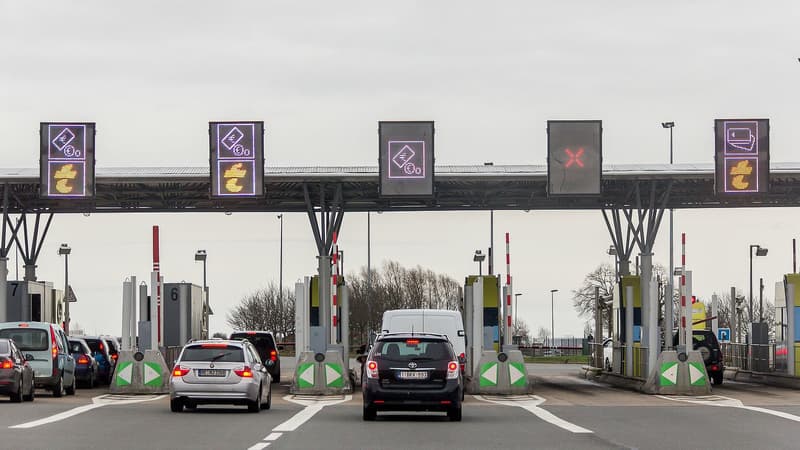French motorway toll rates increase this Wednesday in variable proportions, according to decrees published Tuesday and Wednesday in the Official Gazette. The average increase reaches 4.75% according to the Ministry of Transport.
For automobiles (class 1 vehicle), the rates increase in particular in:
- 4.526% in the Cofiroute network (Atlántico),
- 4.620% for Sanef (North and East),
- 4.683% for Escota (Costa Azul),
- 4.743% for the Paris-Rhin-Rhône (APRR) motorways,
- 4.758% for AREA (Alps),
- 4.823% for the Motorways of the South of France (ASF)
- and 4.806% for SAPN (Normandy), except on the A14 whose toll jumps 9.89%.
The average increase is “significantly lower” than the inflation of 6.33% measured by INSEE at the end of October, the ministry had stressed in December. Several motorway companies have decided on commercial measures to limit the increase, for example for short journeys or electric vehicles.
Tolls had increased on average by 2% in 2022, 0.4% in 2021, 0.8% in 2020, and 1.9% in 2019.
Toll prices are revalued each year, according to a calculation that takes into account at least 70% of inflation (without tobacco) for twelve months until October, and the increases based on the work planned by the different concessionaires in their contracts. He added this year, for the last time, the recovery of the toll freeze decided in 2015 by Ségolène Royal, then minister.
“Go get money”
Two decrees published this Tuesday approve modifications to the contracts that link the State with the companies APRR, AREA, Sanef and SAPN -criticized last year by the Transport Regulation Authority (ART)-, which provide for new construction. Incidentally, APRR’s domain is extended with the seizure of 16 km of the A6 motorway, which until now has been maintained by the State in Ile-de-France.
Most of the highway companies are controlled by three groups, France’s Vinci and Eiffage, as well as Spain’s Abertis.
In this context, Le Canard enchaîné recently found a report from the General Inspectorate of Finance (IGF) for 2021, which would point to the benefits of the concession companies and would propose a 60% reduction in toll rates in almost two thirds of the network.
The satirical weekly accused Economy Minister Bruno Le Maire of having “suffocated” this report.
The government has two ongoing disputes with highway companies, which are challenging a decision in the 2020 finance law to index the land use planning tax (TAT) to inflation, to finance the Seine-North-Canal. Europe, and that they no longer want to pay an “exceptional voluntary contribution,” Ecological Transition Minister Christophe Béchu explained on Tuesday.
The report in question “serves to prepare and support the government’s arguments” in these two cases, “which explains why it has not been published,” he added before the National Assembly.
It is up to Mr. Béchu to “obtain more taxes from the highways” “(going) to look for the money within the framework of these profits that are important”, and to better negotiate the concessions until the expiration of the current contracts (between 2031 and 2036 for groups big).
The much higher-than-expected profitability of highway companies, noted in his Le Canard enchaîné article, would only make “three lines” in the report, Bercy told AFP.
Source: BFM TV


